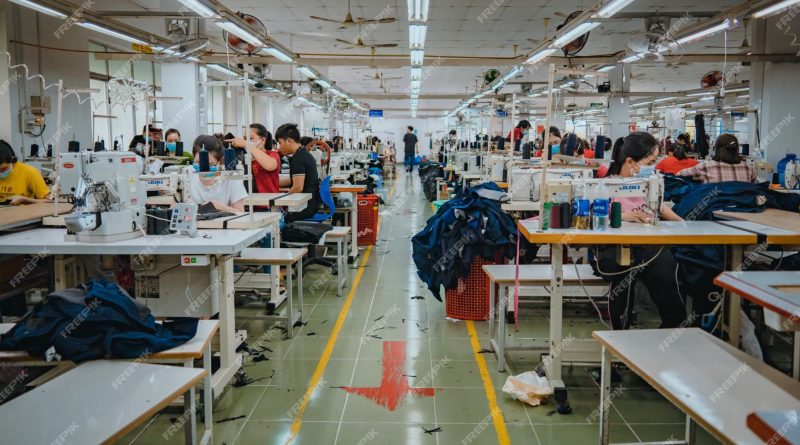The Asia Floor Wage Alliance (AFWA), a coalition of trade unions representing garment workers across Asia, has strongly criticised the recent imposition of US tariffs on apparel imports, warning that the move could trigger widespread factory closures, job losses, and deepen inequality across the global garment supply chain.
In a statement issued on Monday, AFWA cautioned that the new tariffs threaten the livelihoods of millions of workers — the majority of whom are women — already subsisting on poverty wages.
“The US government’s punitive tariffs on apparel imports from Asia put millions of jobs at risk,” said Wiranta Ginting, deputy international coordinator of AFWA. “Tariffs cannot be used as weapons in geopolitical conflicts. We reject this approach, which carries severe human consequences.”
Drawing parallels to the COVID-19 pandemic — during which many global fashion brands cancelled orders, refused payments, and triggered mass layoffs — the alliance warned that a similar humanitarian crisis could unfold if protections for workers are not urgently established.
Call for Brand Accountability and Fair Trade Restructuring
AFWA’s statement outlined four key principles for restructuring global garment trade to protect workers and promote fairness:
- End the Weaponisation of Tariffs:
The coalition argued that tariffs, while legitimate fiscal tools, are now being misused as instruments of geopolitical pressure. It noted that these tariffs are unlikely to result in reshoring garment production to the US due to cost inefficiencies, instead disproportionately harming low-income economies in Asia. - Redistribute Tariff Revenues to Support Workers:
AFWA proposed that at least 50% of US-collected tariff revenues from apparel imports be redirected to producing countries to create a “Social Security Fund” for garment workers. This fund would support those impacted by factory closures or layoffs caused by trade disruptions and be embedded in future trade agreements. - Reject Distorted Tariff Structures:
The group warned that uneven tariffs among Asian countries could destabilise regional production bases and incite destructive competition. It called for a unified approach that avoids dividing the garment workforce or favouring select economies. - Ensure Binding Brand Obligations:
Emphasising corporate accountability, AFWA demanded that brands take responsibility for the consequences of their sourcing decisions. It called for binding agreements with the Asia Brand Bargaining Group (ABBG) to ensure orderly exits and proper compensation in cases of factory closures.
“No brand should be allowed to exit a factory without negotiating with workers. Brands must compensate laid-off workers and guarantee reemployment,” the statement read.
A Call for Global Solidarity
The coalition urged the global labour movement to stand in solidarity with Asian garment workers, declaring that exploitative trade models — which allow brands to profit from low-cost labour but abandon responsibility in times of crisis — must be dismantled.
“The time has come to rewrite the rules of global trade,” the statement declared. “Trade must centre on justice, equity, and human dignity — not profits for the few.”
AFWA called on governments, brands, and international bodies to take immediate steps to reform trade structures and safeguard workers against the collateral damage of geopolitical policies.
“We will fight back through binding brand obligations, redistribution of trade revenues, and global solidarity,” the alliance concluded. “Anything less is betrayal. Anything less is complicity.”






